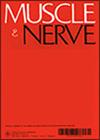Assessing hepatitis B virus serologies when transitioning patients from intravenous immune globulin therapy to rituximab for the treatment of autoimmune neuromuscular diseases
IF 2.8
3区 医学
Q2 CLINICAL NEUROLOGY
引用次数: 0
Abstract
Introduction/AimsIntravenous immune globulin (IVIG) has been used as early treatment for autoimmune neuromuscular diseases, but due to cost and frequency, may be switched to rituximab. Rituximab and other B‐cell‐depleting medications require screening of hepatitis B virus (HBV) serologies given the risk of HBV reactivation (HBVr). We aimed to describe the incidence and characteristics of passively transferred antiviral serologies from IVIG and how to differentiate between passive antibody transfer and resolved HBV infection.MethodsThis was a single‐center descriptive study of neurology patients prescribed rituximab and IVIG. Retrospective medical record reviews were performed and patient‐specific variables were collected.ResultsTwelve patients had reactive anti‐HBc results after starting IVIG, but only 9 were confirmed to have reactive anti‐HBc from passive transfer. Whether reactive anti‐HBc in the remaining three patients was from passive IVIG transfer could not be confirmed. Five patients with reactive anti‐HBc results during rituximab screening did not have pre‐IVIG anti‐HBc results for comparison and were started on antiviral prophylaxis. Reactive anti‐HBc serologies changed to nonreactive after IVIG discontinuation 44–321 days after the last IVIG infusion.DiscussionThis study confirms IVIG can passively transfer anti‐HBc serologies in a neurologic cohort. Ideally, HBV serologies would be checked before starting IVIG to help later determine if passive transfer occurred. With the increasing use of B‐cell‐depleting medications for neuromuscular conditions, it is important for providers to be knowledgeable on the interpretation of HBV serologies for patients on IVIG and to ensure implementation of an HBVr prophylaxis management strategy for patients when appropriate.在患者从静脉注射免疫球蛋白治疗过渡到利妥昔单抗治疗自身免疫性神经肌肉疾病时评估乙型肝炎病毒血清学情况
简介/目的静脉注射免疫球蛋白(IVIG)一直是自身免疫性神经肌肉疾病的早期治疗方法,但由于费用和频率的原因,可能会改用利妥昔单抗。考虑到 HBV 再激活(HBVr)的风险,利妥昔单抗和其他 B 细胞消耗药物需要进行乙型肝炎病毒(HBV)血清学筛查。我们的目的是描述 IVIG 被动转移抗病毒血清的发生率和特征,以及如何区分被动抗体转移和已解决的 HBV 感染。结果12名患者在开始使用IVIG后出现了反应性抗-HBc结果,但只有9名患者被证实为被动转移引起的反应性抗-HBc。其余 3 名患者的抗-HBc 反应性是否来自 IVIG 的被动转移尚无法确认。5 名在利妥昔单抗筛查中出现反应性抗-HBc 结果的患者没有 IVIG 前的抗-HBc 结果可供比较,因此开始接受抗病毒预防治疗。在最后一次输注 IVIG 44-321 天后停用 IVIG,反应性抗 HBc 血清学结果转为非反应性。理想的情况是,在开始使用 IVIG 之前检查 HBV 血清学,以帮助日后确定是否发生了被动转移。随着越来越多的神经肌肉疾病患者使用 B 细胞清除药物,医疗服务提供者必须了解如何解释使用 IVIG 患者的 HBV 血清学,并确保在适当的时候为患者实施 HBVr 预防管理策略。
本文章由计算机程序翻译,如有差异,请以英文原文为准。
求助全文
约1分钟内获得全文
求助全文
来源期刊

Muscle & Nerve
医学-临床神经学
CiteScore
6.40
自引率
5.90%
发文量
287
审稿时长
3-6 weeks
期刊介绍:
Muscle & Nerve is an international and interdisciplinary publication of original contributions, in both health and disease, concerning studies of the muscle, the neuromuscular junction, the peripheral motor, sensory and autonomic neurons, and the central nervous system where the behavior of the peripheral nervous system is clarified. Appearing monthly, Muscle & Nerve publishes clinical studies and clinically relevant research reports in the fields of anatomy, biochemistry, cell biology, electrophysiology and electrodiagnosis, epidemiology, genetics, immunology, pathology, pharmacology, physiology, toxicology, and virology. The Journal welcomes articles and reports on basic clinical electrophysiology and electrodiagnosis. We expedite some papers dealing with timely topics to keep up with the fast-moving pace of science, based on the referees'' recommendation.
 求助内容:
求助内容: 应助结果提醒方式:
应助结果提醒方式:


